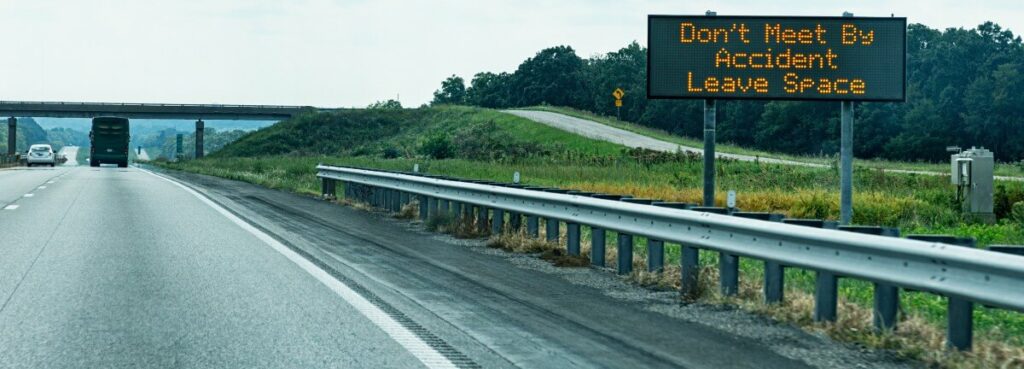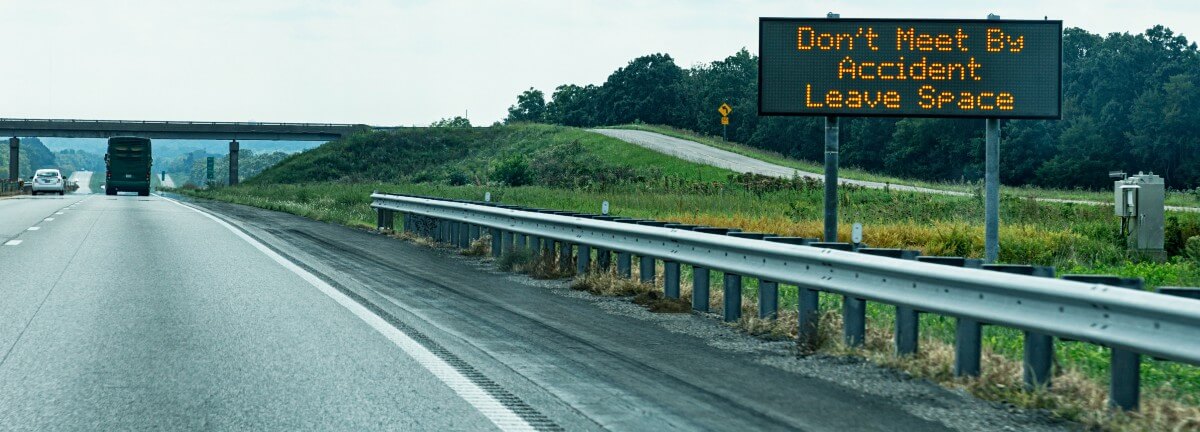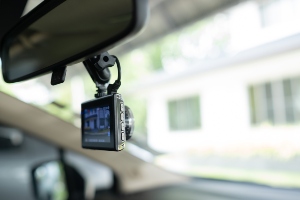What to Know About Liability for a Crash on the Shoulder of the Road

The shoulder of any road can be a dangerous place for drivers. Sometimes it may be necessary to pull over, but you need to be cautious because passing drivers often are not.
If a crash occurs on a road shoulder, it is the passing driver who will most likely be held liable. This is particularly true if the collision involved a vehicle with flashing lights. State law mandates that drivers move over for these vehicles and give them extra space.
Below, we discuss more about crashes involving a vehicle on a road shoulder, including why they may occur and who may be liable.
If you were injured in a crash, the attorneys at Friedman, Domiano and Smith are ready to help you seek full compensation for your damages. There are no upfront costs for our legal services. The initial consultation is free of charge and comes with no obligation to hire our firm.
Contact a Cleveland car accident lawyer today: 216-621-0070.
Ohio’s Move Over Law
Ohio’s Move Over law first went into effect in 1999 and was modified in 2013. Under the law, drivers must move over one lane for vehicles with flashing lights that are stopped on the shoulder. This includes emergency vehicles like ambulances, fire rescue vehicles, police cars, construction vehicles and utility vehicles.
Sometimes moving over one lane is not possible, because of traffic, weather or the lack of another lane to move into. In these situations, drivers need to slow down, use caution and be prepared to stop.
If a passing driver violates this law and causes harm to someone else, such as in a rear-end crash, he or she will likely be held liable for damages.
How Crashes Can Happen on the Shoulder
Sometimes passing drivers fail to stay in their lane, causing them to clip the car in the shoulder at high speed. This may cause serious damage to both vehicles and potentially severe injuries to vehicle occupants.
Sometimes drivers may pull a vehicle over but fail to position the car fully onto the shoulder. This could leave part of his or her vehicle jutting out into the road. If a passing driver hits the parked vehicle in this scenario, the driver in the road shoulder may be partially at fault. Drivers pulling onto a road shoulder owe a duty to make sure their parked vehicle is not in the way of passing traffic.
However, it is important to consider both driver’s duty of care and what is reasonable. For instance, if a passing driver struck a vehicle parked on the shoulder and he or she should have been able to see the car and move out of the way, they may be fully liable if a crash occurs.
Another common accident in a road shoulder occurs when an occupant of the car gets out and gets hit by a passing car. Determining liability in this situation could be more complicated. The passing driver owes a duty to prevent harm to others, even if the parked car in the shoulder does not have flashing lights. Slowing down or moving over a lane in that situation could be considered reasonable actions for a driver to take in order to prevent causing harm to someone. However, the occupants of the parked vehicle also owe a duty to pull over properly, put on their hazard lights and be sure traffic is clear before attempting to exit the vehicle.
Another question that may impact liability is whether it was necessary for the driver on the shoulder to pull over. For example, say a driver pulled over but there was too little room on the side of the road to fully get the car off the road. If the car was also still drivable, the driver who pulled over might be deemed partially at fault if a crash occurs.
Collisions that happen on the shoulder of the road are often complex. Victims involved in these types of crashes may greatly benefit from having an experienced lawyer to help them.
Why do Drivers Pull onto the Shoulder?
There are a few main reasons why drivers pull over onto the shoulder:
- Flat tire or tire blowout
- Engine problem
- Running out of gas
If there was a tire blowout, the car is unsafe to drive. However, sometimes drivers can slow down and get off a highway or interstate with a flat tire. It is typically better to pull over in an area where there is no fast-moving traffic.
Newer cars have technology that can prevent the car from traveling over a certain speed if there is an engine problem, such as a high risk of overheating. These vehicles could move over into the slow lane and find a safe place to pull over. Older cars do not have this technology and can typically be driven until they overheat. If smoke comes out from under the hood, however, the driver will have to pull over.
If the car runs out of gas, there is no choice but to pull over to the side of the road and call for help.
There may be other situations when pulling over is not necessary and may be dangerous. For example, if you need to pull over to look up directions, you can pull over somewhere safe. There is no reason to expose yourself or others to unnecessary risk by pulling onto a road shoulder if you do not need to.
Bad weather may cause some people to pull over to wait for the weather to pass. Sometimes, this may be a good idea. However, it is almost always better to get off the highway or interstate first before pulling over.
Who Else Could Be Liable for a Crash on the Shoulder of the Road?
Sometimes government entities could be held liable for a shoulder of the road crash. For example, the driver who pulled over may have lost control because of a significant and unexpected drop off between the shoulder and the road. The entity responsible for maintaining the road may be liable because the drop off made the created a dangerous hazard.
Sometimes passing drivers may lose control and crash into a vehicle on the shoulder after hitting a pothole. The party responsible for maintaining the road may be held liable.
Vehicle manufacturers or manufacturers of vehicle components may bear liability for a crash if a defective part caused a driver to have to pull off the road.
However, it is important to note that crashes, including those that happen on a road shoulder, are usually due to driver negligence. Even if a government entity or product manufacturer could be deemed liable, these cases are often challenging and difficult to prove. We do not advise victims to try to seek compensation without an attorney.
Call Friedman, Domiano and Smith to Discuss Your Claim
We have been advocating for car crash victims in Cleveland and Northeast Ohio for many years. In that time, our attorneys have helped many victims recover compensation through out-of-court settlements and courtroom verdicts.
If you have questions after a car crash, you should strongly consider contacting one of our experienced attorneys. There are no upfront fees for our services.
Call to discuss your legal options today. 216-621-0070
Comments are now closed




Comments